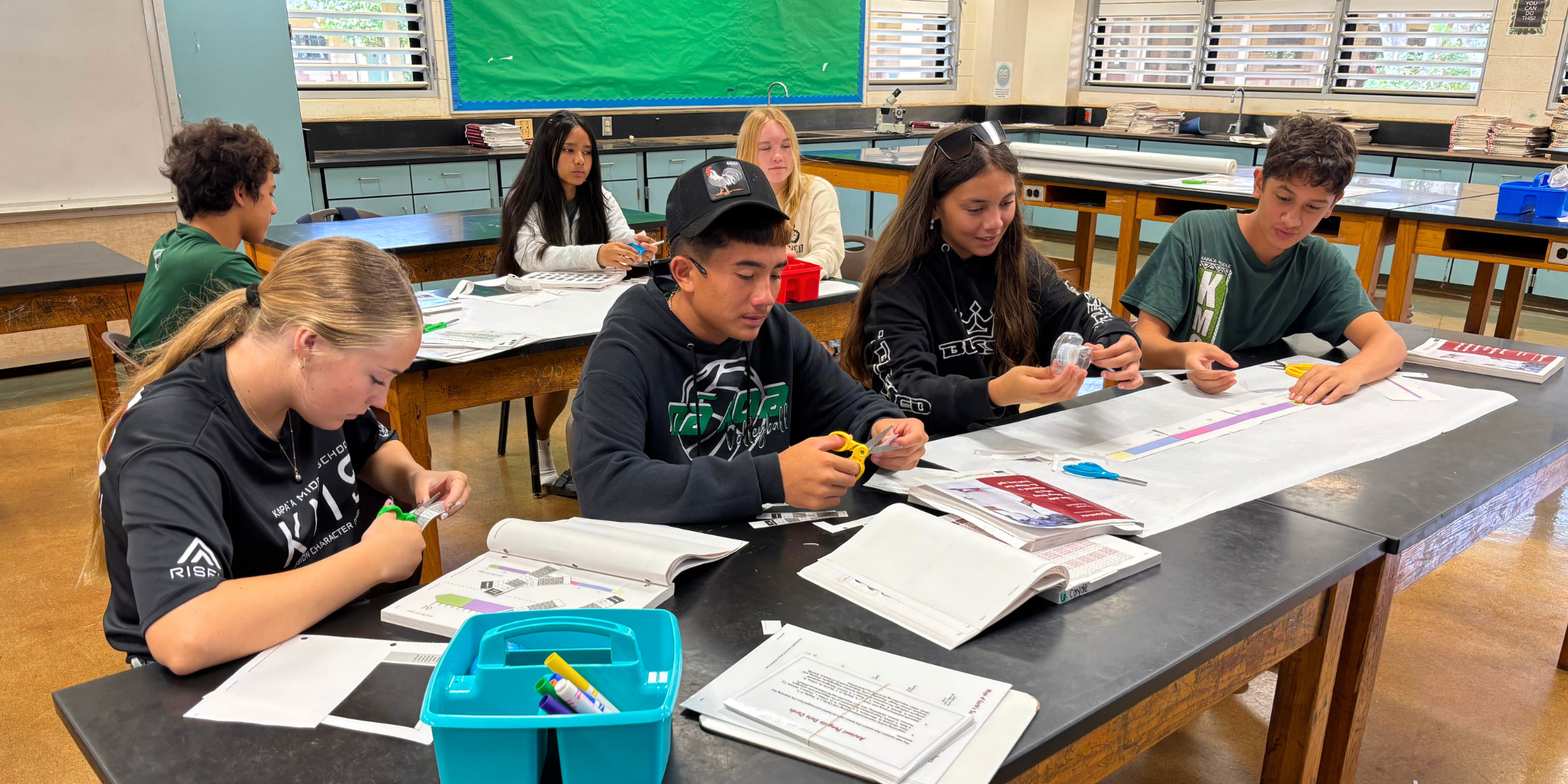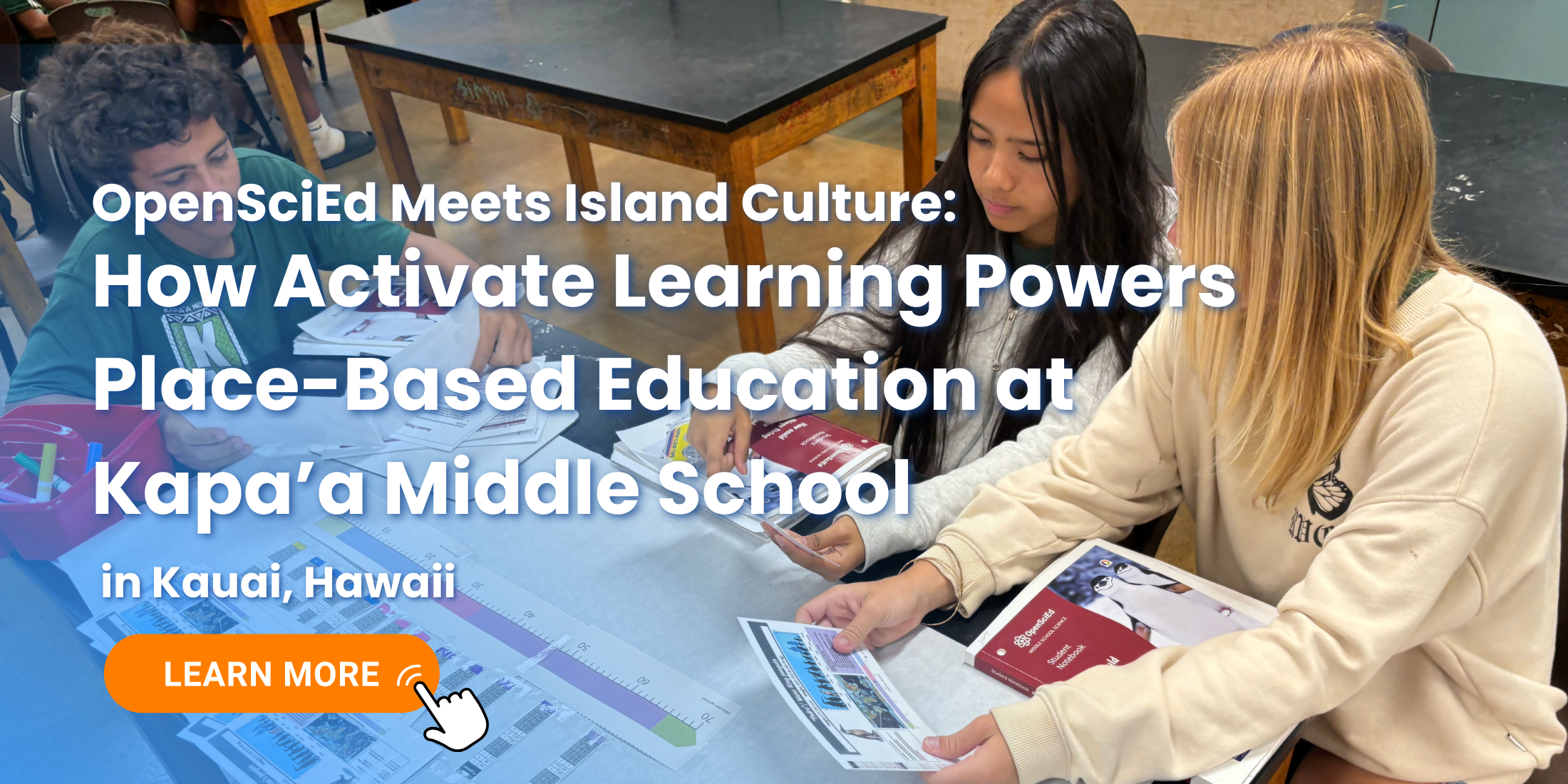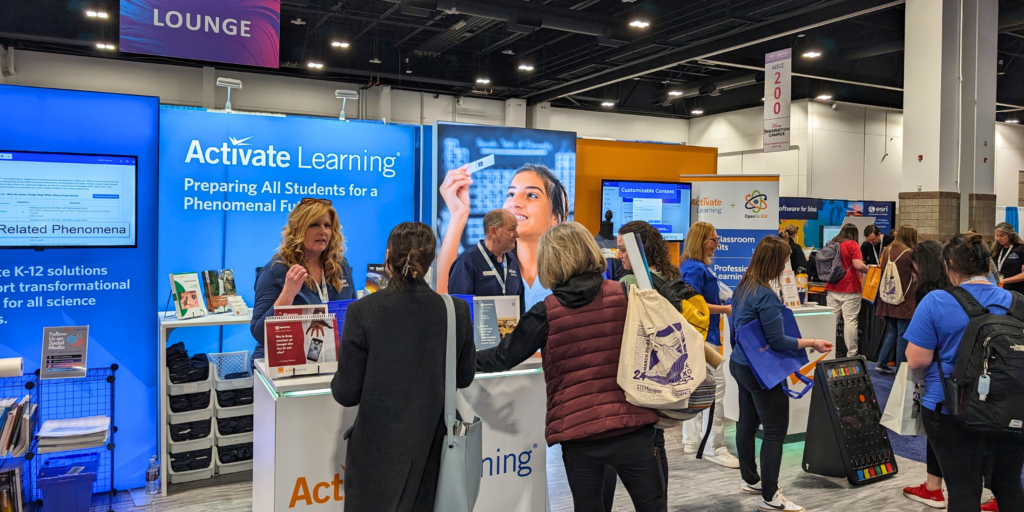OpenSciEd Success in Rural Hawaii Powered by Activate Learning
Place-Based Learning and OpenSciEd Success in Rural Hawaii Powered by Activate Learning

Quick Take: In the remote island of Kauai, two middle school teachers discovered that comprehensive curriculum support doesn't just enable rural implementation, it unlocks authentic place-based learning that connects rigorous science standards to local culture. Their first-year success with OpenSciEd proves that when rural educators work with the right partner, they can successfully adopt innovative curriculum and create learning experiences for students that honor both global excellence and local identity.
The Rural Reality
Nearly 10 million students attend rural public schools across the nation. Yet, these districts face unique challenges: geographic isolation, limited access to professional development, and the constant need to adapt urban-designed curricula to local contexts. According to Education Week, rural schools "have had to make significant cuts, merge operations, and even shut down entirely" as economic pressures mount. For science education specifically, sourcing materials and implementing investigation-centered curricula can feel insurmountable.
But rural schools also possess distinct advantages: deep community connections, rich local environments, and opportunities for authentic place-based learning that urban districts struggle to replicate. Hawaii's commitment to this approach, preparing students who are "globally competitive and locally committed,” found its perfect match in OpenSciEd's flexible, phenomenon-based design.
The Activate Learning Difference
When Kapaʻa Middle School's science team chose OpenSciEd and partnered with Activate Learning, they experienced something remarkable: immediate confidence and classroom success instead of first-year struggles. Through experiential professional development, comprehensive science kits, and ongoing responsive support, both veteran science teacher Melissa Wolfson and newcomer Rachel Taylor discovered they could implement rigorous three-dimensional learning from day one.
The key was a comprehensive partnership with Activate Learning that addressed every rural implementation barrier:
- Science Kits: Eliminated the "sourcing at Safeway or Walmart" challenge rural teachers face
- Personalized Professional Learning: Role-playing as students built immediate classroom confidence
- Ongoing Support: Personal, responsive relationships that rural educators rarely experience
- Physical Workbooks: Hands-on student notebooks for deeper learning
What You'll Discover in This Success Story
- Place-Based Learning in Action: How specific OpenSciEd units transformed into authentic island investigations, from endangered Hawaiian forest birds (natural selection) to plantation history (ecosystems) to local truck culture (sound waves).
- Rural Decision-Making Excellence: The collaborative process that led three teachers to choose transformation over comfort, proving rural schools' capacity for thoughtful, student-centered innovation.
- First-Year Implementation Success: Evidence that comprehensive support enables immediate confidence and engagement, not the typical struggle-through-year-one experience.
- Student Voice and Empowerment: How investigation-centered learning shifted students from passive recipients to active questioners, with authentic cultural connections emerging naturally from their curiosity.
- Sustainable Partnership Model: The responsive, personal support that made one teacher declare it was "complete night and day" from previous curriculum experiences.
A Vision Realized: OpenSciEd Success in Rural Hawaii
Melissa and Rachel's story demonstrates that rigorous science education and cultural responsiveness aren't competing priorities, they're complementary approaches that create more meaningful learning for all students. When students investigated their island's unique ecosystems, connected family health experiences to metabolic reactions, or explored conservation careers needed in their own community, they were meeting NGSS standards and discovering their role as both scientists and stewards.
For rural districts nationwide seeking to honor local contexts while meeting rigorous standards, Kapaʻa's OpenSciEd journey offers both inspiration and a practical roadmap: comprehensive support, authentic partnerships, and place-based flexibility can transform rural implementation challenges into educational excellence.
Ready to make teachers the engine of your next big leap?
Read the full Kapaʻa Middle School success story to see what’s possible when science learning starts at home.🚀




